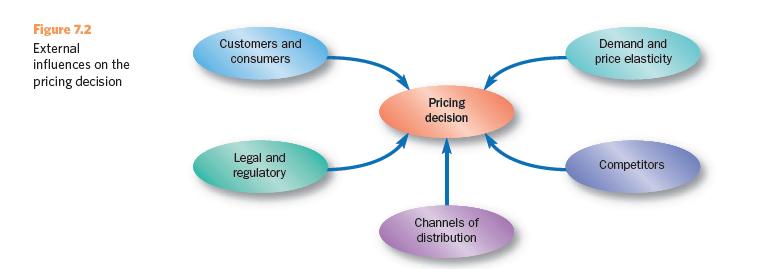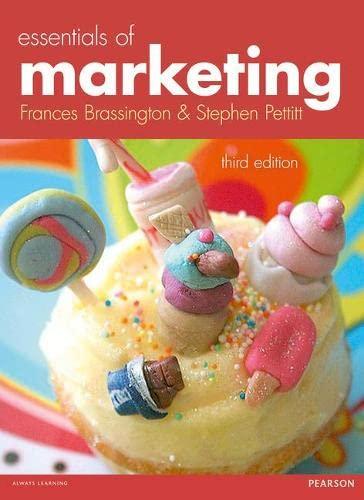One of the more interesting side-effects of the internet is that it has made it a lot
Question:
One of the more interesting side-effects of the internet is that it has made it a lot easier to be price sensitive by taking the time, cost and physical effort out of ‘shopping around’ for goods and services. In the pre-internet days, if consumers wanted to shop around for a good deal on a new fridge-freezer, they might have to spend a couple of weekends doing a tour of local stores comparing specifications and prices, and perhaps travel a bit further afield to a bigger city or out of town shopping centre where there might be more choice or more competitive prices to be found. It was a similar story with services such as car insurance: an annual ritual of setting aside time to compile a list of brokers and insurance providers from the Yellow Pages, then phoning round them all, going through the same basic information set with all of them, writing down all the quotes and details of what is or isn’t included in the cover offered, and finally making a decision and phoning one of them back. It would be hard to blame a shopper who decided that for the sake of saving a few pounds it wasn’t worth the effort, thus effectively placing speed, convenience and lack of hassle higher up the decision-making-criteria list than price.
Once the shopper goes online, of course, it’s a different story. Detailed comparison of product or service specifications, price and even availability across hundreds of geographically dispersed providers is just a few clicks away, and once a buying decision has been made, it’s equally easy to complete the deal online. The advent of price-comparison websites has made it all even easier, by effectively providing a one-stop marketplace for the shopper so that they can enter their requirements/details just once and receive a structured comparison of a wide range of competing offers.
A survey conducted by New Media Age (2011)
found that many respondents thought that the internet was the cheapest place to buy things (ranging from 82 per cent finding it the cheapest place to buy CDs/DVDs to 20 per cent for groceries), and that 76 per cent used online prices as a reference point to negotiate prices for the same items in shops.
So, for the shopper, at first glance this might seem like a fantastic idea. The price-comparison website looks like the shopper’s best friend, a neutral third party that does all the hard work and gives you a list of the best deals for you, in order of appropriateness.
Unfortunately, it’s often not that transparent or simple, however. Few shoppers pause to think about how the price-comparison websites make their money, for instance. The fact is that they generate revenue from commission earned from ‘click throughs’, i.e. if you find a deal you like the look of on the price-comparison website and click through to follow it up on the supplier’s own site, then the pricecomparison site gets paid. In financial services, for example, this, on average, might be £40 commission on an insurance policy or up to £150 for a loan application (Wallop, 2009). This sort of arrangement gives the price-comparison websites an incentive to feature those suppliers paying the most commission more prominently and, of course, there is no incentive at all to ‘push’ the products of those suppliers who are not prepared to pay commission at all. A YouGov survey (reported by Marketwire, 2011) suggested that, on average each shopper on price-comparison websites generates £64.59 in commission, which amounts to £652.5 million per year for the industry. And then there’s the revenue they earn on top of that from selling on your personal details to other marketers.
Questions
1 What do you think are the key factors influencing the price of car insurance? Use Figures 7.2 and 7.6 to help you structure your answer.
2 What are the advantages and disadvantages of opting out of allowing your products or services to feature on price-comparison websites, as Direct Line and others have done?
3 Are there any types of goods or services for which price-comparison websites might be inappropriate? Why?
4 In general, to what extent do you think that the easy online availability of price information and comparison is a good thing for marketing?

Step by Step Answer:

Essentials Of Marketing
ISBN: 9780273727644
3rd Edition
Authors: Frances Brassington, Dr. Pettitt, Stephen





